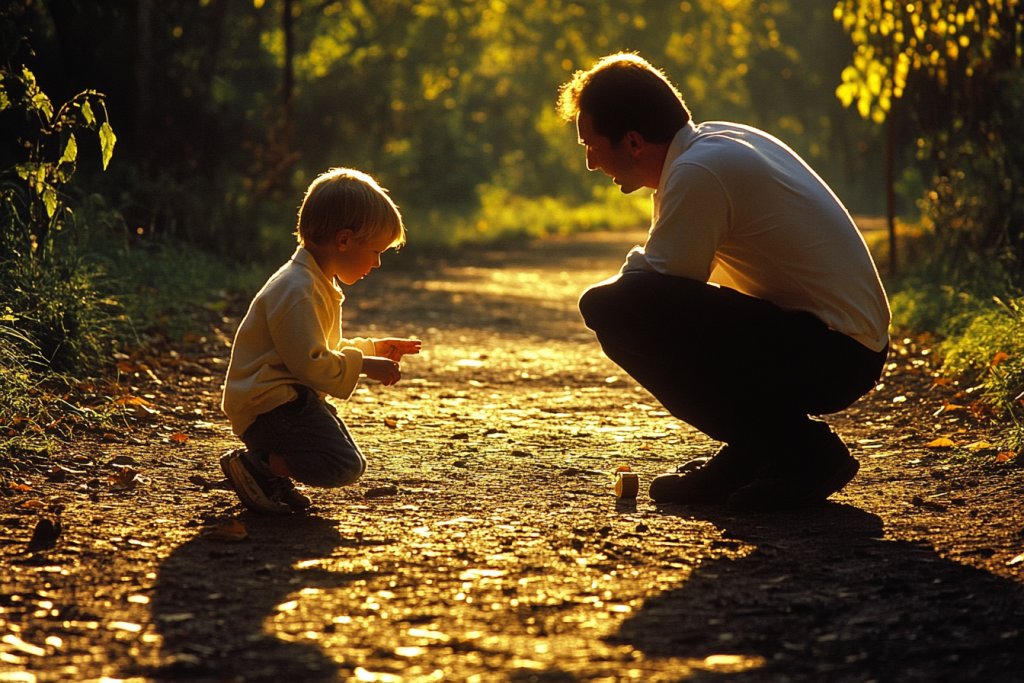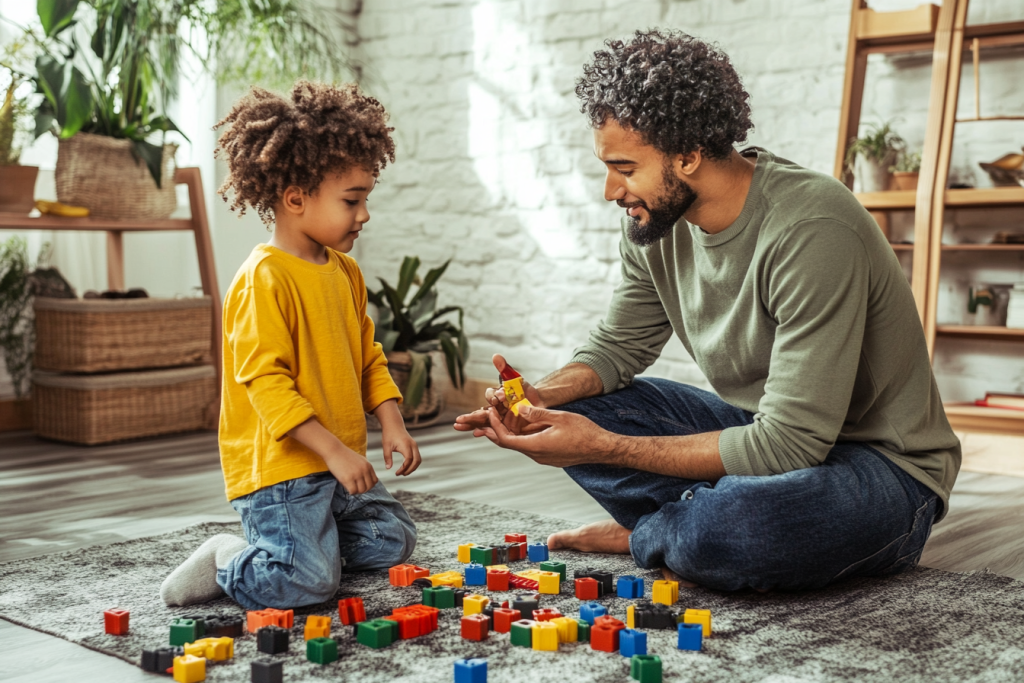The strongest families aren’t built through power and control but through connection, empathy, and respect.
Positive parenting that works begins with seeing your child as a whole person and guiding their growth with emotional support, consistent boundaries, and loving leadership. This mindful approach helps shape confident, kind, and emotionally balanced children.
The Core of Positive Parenting
Connection Over Correction
Before correcting behavior, focus on the emotional connection. A child who feels seen and heard is far more likely to cooperate and grow with guidance.
Guidance Over Punishment
Replace threats and punishments with meaningful teaching moments. Positive parenting is rooted in helping, not hurting, behavioral growth.

Lead With Empathy and Respect
Validate Emotions First
Acknowledge your child’s feelings, even when the behavior is challenging. “You’re angry because your toy broke—that makes sense.” Empathy opens the door to cooperation.
Avoid Shaming Language
Phrases like “What’s wrong with you?” damage self-worth. Instead, use language like “Let’s figure this out together.” Respect builds lasting influence.
Use Calm and Clear Communication
Speak at Eye Level
Get down to your child’s height and maintain gentle eye contact. It signals respect and helps de-escalate tension.
Replace Commands With Invitations
Instead of “Clean this up now,” try “Let’s clean this up together so we can start something fun.” Collaboration promotes willingness.
Set Firm But Loving Boundaries
Clear Expectations Create Safety
Children thrive when they know what to expect. Use consistent, kind language: “We keep our hands to ourselves” or “Screens go off at 7.”
Follow Through Without Harshness
If a rule is broken, calmly enforce the consequence. “The toy will rest for today, and you can try again tomorrow.” Boundaries without anger keep trust intact.

Discipline That Teaches Not Punishes
Use Natural Consequences
Let your child experience the result of their actions within safe limits. If shoes are left out, they might get lost. These moments teach responsibility.
Focus on Problem-Solving
Instead of punishing, ask “What can we do differently next time?” or “How can we make it right?” This builds emotional intelligence and accountability.
Praise Progress and Effort
Celebrate Small Wins
Recognize when your child shares, waits patiently, or tries something new. “I noticed how you waited for your turn. That took a lot of patience.”
Avoid Overpraising
Praise the process, not just the result. “You worked so hard on that puzzle,” helps your child value effort over perfection.
Encourage Independence with Support
Let Them Try and Struggle
Give your child room to practice new skills, even if they stumble. Growth happens in the attempt, not just the success.
Offer Encouraging Words
Say, “I see you’re working hard,” or “I’m here if you need help.” Encouragement gives confidence without pressure.
Build Daily Connection Rituals
Morning and Bedtime Routines
Start and end the day with touchpoints of connection—hugging, reading, or sharing gratitude. These anchor your child emotionally.
Special One-on-One Time
Schedule daily time to connect without distractions. Even 10 minutes of focused attention builds closeness and improves behavior.

Model What You Want to See
Be the Calm in Their Chaos
Children learn self-regulation through observation. Responding calmly when they are upset teaches them to do the same.
Demonstrate Respect in Action
Use polite language, listen actively, and apologize when you make mistakes. Your child will mirror what you model.
Repair and Reconnect Often
Mistakes Are Learning Moments
If you yell or lose patience, repair the moment. “I got frustrated and raised my voice. That wasn’t okay. I’m sorry.”
Rebuild Trust With Connection
After conflict, reconnect through affection or shared activities. This reinforces that love is stronger than mistakes.
Long-Term Impact of Positive Parenting
Strong Emotional Foundations
Children raised with connection and respect grow into adults who trust, communicate, and regulate emotions.
Resilient and Confident Kids
When kids feel valued and guided instead of controlled, they develop confidence, resilience, and inner strength to face life with courage.
Conclusion
Positive parenting that works isn’t a formula—it’s a relationship. It’s built through consistency, calm communication, emotional presence, and mutual respect. These daily practices raise emotionally strong, connected, and capable children—and foster peace, trust, and love at the heart of your home.

